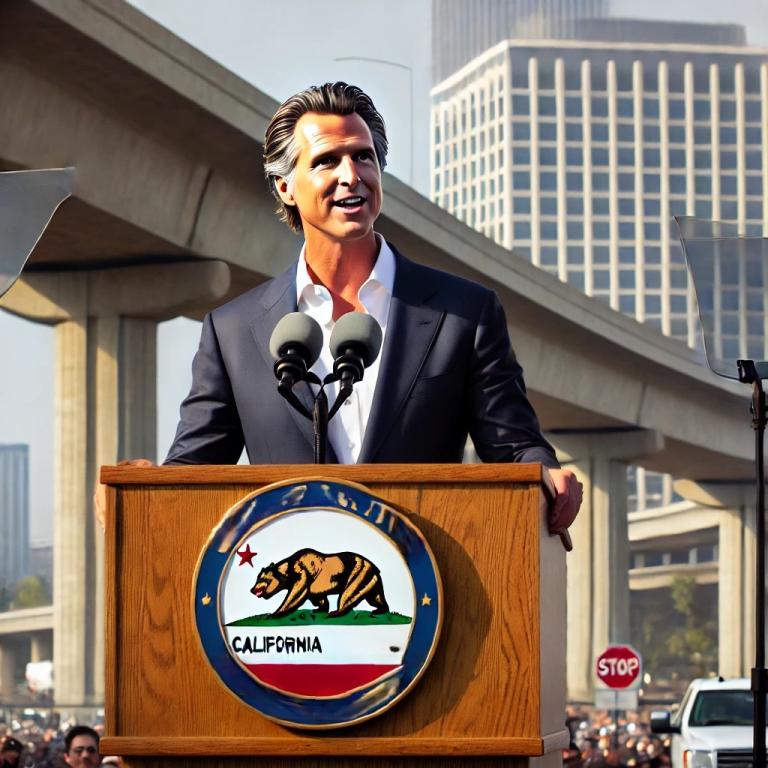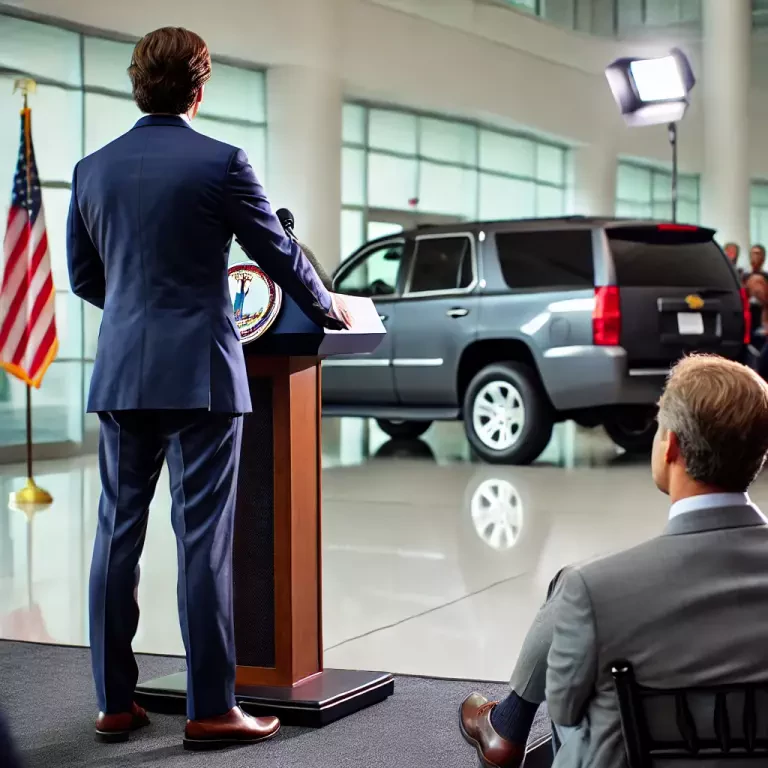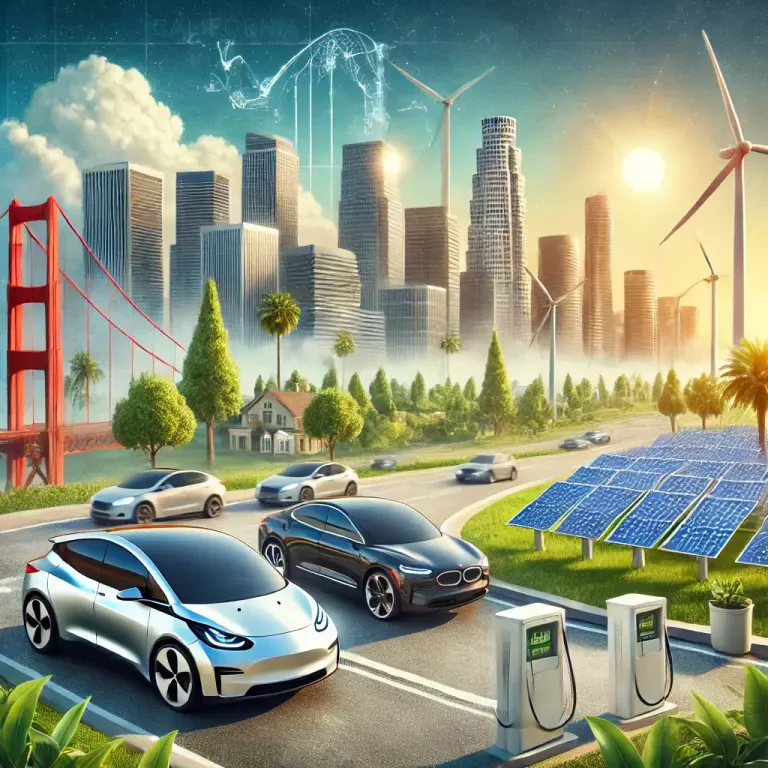
CA Governor Gavin Newsom has been in the news lately for his many (controversial) decisions regarding everything Californian. From budget revisions to climate change initiatives, Newsom's been somewhat vilified in the more conservative media for his policies. In particular, California's strict vehicle emissions standards are as controversial as they can be.
Another governor is also rising in the news in relation to Newsom: Virginia Governor Glenn Youngkin. However, instead of showing support and solidarity for the California governor, Youngkin stands in opposition to California's extremely stringent vehicle emissions standards. The Republican VA governor has declared that his state won't follow California's emissions standards that mandate all new passenger cars sold by 2035 must be electric.
In a press release, Youngkin announced that the EV mandate was "misguided." To Youngkin, the mandate was "imposed by unelected leaders nearly 3,000 miles away from the Commonwealth." He also claimed it was absurd that the government should tell its citizens what kind of car they must have.
“The idea that government should tell people what kind of car they can or can’t purchase is fundamentally wrong," he said in the press release. "Virginians deserve the freedom to choose which vehicles best fit the needs of their families and businesses. The law is clear, and I am proud to announce Virginians will no longer be forced to live under this out-of-touch policy.”

How Virginia Came to Follow California's Clean Air Regulations
In 2021, lawmakers in Virginia passed a similar regulation to match the state's emissions standards with the same ones passed in California. The official plan from the California Air Resources Board was to phase out the sale of new gasoline-fueled cars in Virginia. It would gradually ban gas in 2025.
By 2026, 35% of cars sold must be zero-emissions if the state wants to fulfill the mandate of selling 100% electric vehicles by 2035. However, EV sales are low in Virginia, only amounting to 9% in 2023.
If an auto manufacturer sells a car without complying with the Californian mandate, there may be a fine of up to $20,000 per car sold. The governor thinks this will put Virginian auto dealers and consumers at risk financially. Hence, Youngkin wishes to do away with this regulation.
No Legal Obligation to Follow California Regulations
Meanwhile, Senator Ryan McDougle (co-patron of the legislation to repeal the mandate during the legislative session) also pointed out that the mandate is a California-specific solution to the unique environmental conditions in the Golden State. He emphasized it had nothing to do with the circumstances in Virginia.
"Virginia laws should not be determined by California politicians," he was quoted saying in Youngkin's press release. "Instead, our laws should be decided by Virginians who are elected to serve Virginia and address issues that face our Commonwealth, not a state nearly 3,000 miles away."
Attorney General Jason Miyares also commented on the issue. He also pointed out that Virginia is not obligated to match California's regulations. “Today, I’ve issued an official Attorney General Opinion that confirms that Virginians are no longer legally bound to follow the emission standards of California.”
The AG continued, "EV mandates like California’s are unworkable and out of touch with reality, and thankfully the law does not bind us to their regulations. California does not control which cars Virginians buy and any thoughts that automobile manufacturers should face millions of dollars in civil penalties rather than allowing our citizens to choose their own vehicles is completely absurd.”

The Response to Youngkin's Statement
Democrats and environmental groups are quick to criticize Youngkin's stance. Senate Majority Leader Scott Surovell mockingly wrote in a text message, "He seems to think he has more power than Vladimir Putin. The governor is breaking the law and the AG is giving him cover."
The Southern Environmental Law Center condemned the governor's decision. The group called it "illegal, shortsighted, and bad public policy."
Trip Pollard, a senior attorney with the SELC, also released a statement. "The Clean Cars standards will help spur the transition to cleaner vehicles and bring significant health and environmental benefits to all Virginians. That is why the General Assembly adopted them. The Governor tried to get the legislature to repeal the law and failed; he cannot just dictate a different outcome."
Going forward, the Commonwealth of Virginia will default to federal standards at the end of the year. Then, starting on January 1, 2025, the state plans to adopt federal emission standards instead.
Governors Against Climate Change
Youngkin is not the only one not on board with the environmentally friendly practices. Florida Governor Ron DeSantis is also seemingly waging a war on climate change. He recently signed a bill that erases the references "climate change" from future energy decisions in the Sunshine State.
This is perhaps not so surprising, considering that DeSantis, a Republican, is admittedly "not a global warming person." He also once said he'd expand the American domination in oil and gas, promising (as a presidential candidate) to replace the words "climate change" with "energy dominance" in national security and foreign policy guidance.
But a survey from Florida Atlantic University shows that Florida residents mostly disagree with their governor. 90% of Floridians believe climate change is real—this is a higher number than the nationwide score of 72% of all American citizens believing the same.
However, Youngkin insisted he was not cut from the same cloth. He claimed he wasn't bashing electric vehicles. The key part of his decision to abandon the California mandate was all about returning choices to the people of Virginia.
Talking to reporters at an event, Youngkin said, "I am very supportive of Virginians buying electric vehicles. But I want Virginians to make that decision for themselves."
When asked if he agreed that buying electric vehicles would result in a greener planet, Youngkin responded with a reminder of the complexities of producing batteries for EVs and generating energy to charge them. "Let's just be clear, the power comes out of the wall," the governor said. "And the wall has a power source that is a mix of generating capacity. And that is something that I think people forget to talk about."

Final Thoughts on the Governor Wars and the Debate Surrounding EV Laws
Each US governor has the right to govern their state according to the law. Youngkin's stance in denouncing Newsom's strict electric vehicle mandate seems to be the result of his desire to keep Virginian matters at home. As long as Virginia strives for clean air for its residents, abandoning Californian regulations for federal ones shouldn't be a problem.
However, there's no denying that drastic changes must be made to meet emissions standards that would eliminate greenhouse gasses caused by diesel-fueled and gasoline-powered vehicles. In this regard, Gavin Newsom's emission standards for California, a state known for very poor air quality, should work and would benefit any state that also adopts them.
Follow the latest developments in the automotive and shipping industries by checking out A1 Auto Transport's blog.






 Share on Facebook
Share on Facebook Share on LinkedIn
Share on LinkedIn Share on Twitter
Share on Twitter




 Google
Google  Instagram
Instagram  Trustpilot
Trustpilot 



